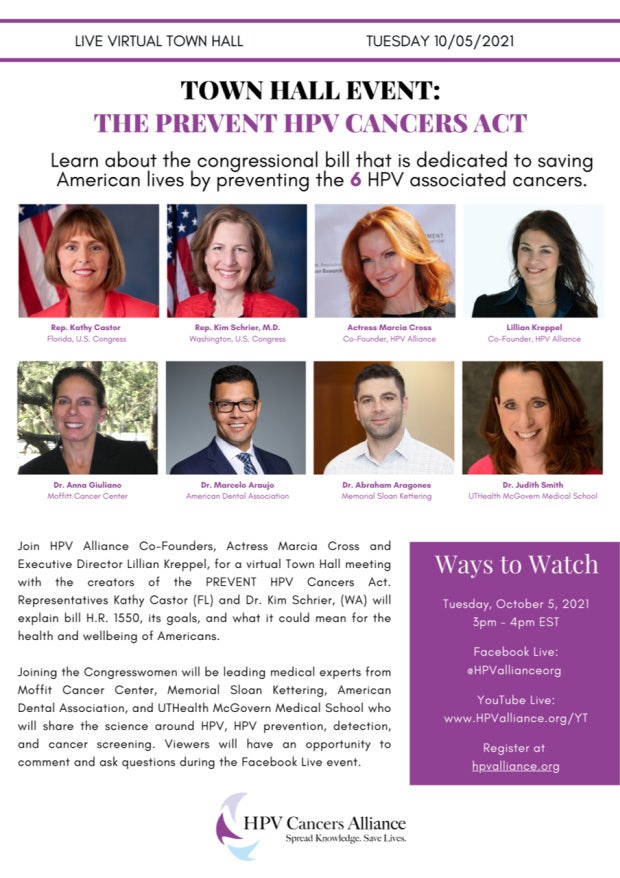How To Prevent HPV And HPV-Related Cancers
Prevention is key.
 Aleshyn Andrei / Shutterstock
Aleshyn Andrei / Shutterstock Human papillomavirus, more commonly known by its acronym HPV, is a sexually transmitted infection (STI) that often makes itself known by warts on the genitals or the surrounding skin.
According to the Cleveland Clinic, just over 79 million Americans are believed to be currently infected with HPV, with 14 million people being infected each year.
HPV is easily spread through skin-to-skin contact, making it the most common sexually transmitted infection in the U.S.
Non-profit organization HPV Cancers Alliance says it is generally it is believed that an HPV infection is present in 45% of men and 40% of women between the ages of 18 and 59.
But while more than 80% of sexually active people are infected with HPV at some point in their lives, many of those same people never know they have it. You may be infected with HPV without developing symptoms, yet still infect others.
Unfortunately, there is still no cure for HPV at this time, with treatment usually revolving around removal of genital warts sometimes caused by the virus.
One of the most concerning issues with HPV is that the virus is known to cause several types of cancer. And while most cases of HPV do not lead to cancer, it is estimated that there are around 45,300 HPV-associated cancer cases in the U.S. each year.
That's still a big number — which is why HPV Cancers Alliance and actress Marcia Cross is hosting a virtual town hall on Tuesday, October 5, 2021 with U.S. Representatives Kathy Castor (FL) and Dr. Kim Schrier (WA) to educate people about the “PREVENT HPV Cancers Act.”
The HPV virus, related cancers, and this bill aimed toward prevention are important matters of public and personal health we should all know more about.
Types of Cancer Caused by HPV
You don’t get cancer immediately when you contract HPV. It can actually take decades of living with HPV to develop into something like cancer, but it can and does happen.
According to the CDC, “HPV is thought to be responsible for more than 90% of anal and cervical cancers, about 70% of vaginal and vulvar cancers, and more than 60% of penile cancers.”
There are six types of cancer that may be caused by HPV: cervical cancer, anal cancer, head and neck cancer, penile cancer, vaginal cancer, and vulvar cancer.
How to Prevent HPV and HPV Cancers
You can learn more about HPV prevention at the Town Hall Meeting on October 5 at 3 pm EST, which will be live-streamed on both Facebook and YouTube.
In the meantime, here are the basic avenues for preventing HPV and HPV-related cancers.
1. Get the HPV vaccine.
The HPV vaccine, Gardasil, protects you against the types of HPV that cause most cancers. Not only does it protect you from the HPV infection but can also protect you from most genital warts in general.
The CDC encourages all children get this vaccine around the age of 11 or 12, and it is also recommended for everyone between the ages of 9 to 26. The vaccine is only recommended for people between the ages of 27 to 45 if their doctor believes it is the right decision for them.
2. Use condoms.
HPV is spread through skin-to-skin contact. Therefore, if you use a condom, your risk of getting HPV drops significantly. This goes for every sexual act, and not just penis-in-vagina intercourse.
HPV can be present on areas of the skin condoms don’t cover, so it this method does not fully protect you against contracting the virus. However, it is remains an effective practice for HPV prevention.
3. Strengthen your immune system.
You should strengthen your immune system by adopting a healthy lifestyle. Your immune system is your front line when it comes to fighting off infections, so the stronger your’s is the better off you’ll be.
To do this you can follow a healthy diet, exercise regularly, don’t smoke, and don’t drink to excess.
4. Get screened regularly.
By getting screened for cervical precancers is a good way to catch it early. With early detection comes a higher remission rate.
Margot Watson, M.D., an OB/GYN with Johns Hopkins Medicine, makes the folllowing recommendation.
"A Pap smear is used to screen women for cervical cancer. Years ago, women had a Pap smear at each annual visit, but today Pap smears have improved and we know cervical cancer takes many years to develop. Women should start Pap smear screening at age 21. Between the ages of 21-29, women whose Pap smears are normal only need it repeated every three years. Women ages 30 and over should have testing for the human papillomavirus (HPV) with their Pap smear."
To become more knowledgeable about how to prevent HPV cancers I urge you to attend the HPV Cancers Alliance Town Hall Meeting This Tuesday at 3 pm.

Panelists consisting of Dr. Anna Giuliano, Dr. Abraham Aragones, Dr. Marcelo Araujo, and Dr. Judith Smith, will discuss key issues that the “PREVENT HPV Cancers Act” is planning to address. This includes barriers to HPV vaccination, infection rates, immunity and recurrent HPV, HPV-associated cancers, and the virus’s impact on under-served communities in the United States.
“We think it is incredibly important for the public to make time to educate themselves about one of the most common viruses out there, the cancers it causes, and how this Bill proposes to address that, " says Lillian Kreppel, Executive Director, HPV Cancers Alliance.
You can attend the event on Facebook Live at @hpvallianceorg or on YouTube at www.hpvalliance.org/YT.
Register in advance at HPVAlliance.org.
Deauna Nunes is an assistant editor who covers pop culture, love and relationships, lifestyle, and news & entertainment for YourTango. She's been published by Emerson College's literary magazine Generic. Follow her on Twitter and Instagram

